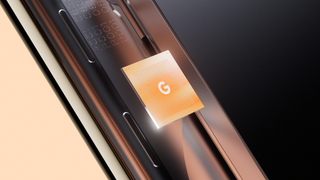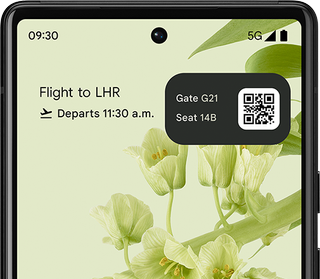Google Pixel 6 — here’s what it needs to not be another flop
It will take more than just the new Tensor silicon to make the Pixel 6 stand out

The Google Pixel 6 and Pixel 6 Pro will make their debuts later this month at Google's Oct. 19 Pixel Fall Launch event. And so far, it seems that Tensor will be the star of the show.
Tensor is the Google-designed chipset which the company has already said will power the new phones. That's certainly set tongues wagging in the tech world, as new silicon tends to draws attention. But will Tensor's official arrival onboard the Pixel 6 generate interest among smartphone shoppers who are less inclined to dig into the nuts and bolts of handset hardware?
It seems unlikely.
- Google Pixel 6 Tensor chip: Could it be a game-changer?
- Here's all the likely differences between the Pixel 6 vs. Pixel 5a
- Plus: Could a Pixel Fold also appear with the Pixel 6?
"Tensor itself will not interest mainstream consumers even a little," agreed Avi Greengart, lead analyst at Techsponential when I asked him about the possibility of Tensor-mania gripping the nation later this month. "Though, if the new silicon enables unique capabilities, that could break through the noise."
And that's the challenge Google faces heading into its Pixel Fall Phone launch. It's one thing to have a marquee feature like a new system-on-chip to make your phone stand out from the crowd. It's quite another to make it clear why people should be excited about that change and what it means for day-to-day phone use.
If the Pixel 6 and Pixel 6 Pro are to make a splash, Google is going to have to offer us more than just the arrival of Tensor. Here's how the company could pull that off.
Google Pixel 6: A Tensor refresher course
First, a little Tensor background. Google first confirmed that the chipset was slated for the Pixel 6 and Pixel 6 Pro at the beginning of August. (Revealing your surprise new feature two months before the phones see the light of day is another reason why Google's Pixel Fall Launch event requires more than just a recitation of specs.) And the focus of this chip is less about raw performance and more about on-board intelligence.
Sign up to get the BEST of Tom’s Guide direct to your inbox.
Upgrade your life with a daily dose of the biggest tech news, lifestyle hacks and our curated analysis. Be the first to know about cutting-edge gadgets and the hottest deals.

Specifically, Tensor boasts enhanced artificial intelligence and machine learning features. Those take place on the Tensor Processing Unit, which frees up the phone's CPU to handle other tasks. What's more, the TPU is a core part of the pipeline on the Tensor system-on-chip, so it will be handling a lot of tasks.
A safe assumption is that Google has emphasized AI horsepower for better computational photography and voice-driven interactions.
— Avi Greengart, Techsponential
Greengart is right when he says that's the sort of thing that interests "technology journalists, analysts, and YouTubers... and the added attention should help Google’s smartphone efforts." But talk of tensor processing, machine learning and neural engines makes the average person's eyes glaze over. It's going to be incumbent on Google to use the Pixel 6 launch to explain what a dedicated Tensor Processing Unit means for everyday phone use.
"While Google has previewed what the Pixel 6 looks like, it has not provided any details yet on what the Tensor chip will actually do," Greengart said, "A safe assumption is that Google has emphasized AI horsepower for better computational photography and voice-driven interactions."
Adding to the Pixel's already formidable photo smarts is probably the most tangible benefit that Tensor will bring. Already, Pixel users can see Google flex its computational photography prowess with features like Super Res Zoom, which taps software to minimize the noise that can result from a digital zoom (handy, since the current Pixel phones lack a telephoto lens). The Pixels' ability to capture low-light photos has also been augmented by software, so hopefully a dedicated TPU opens up new possibilities on that front.
@tomsguide ♬ levitating x promiscuous DJ Lilli - DJ Lilli
The Pixel 6 could certainly stand to add some of those, especially with Apple's iPhone 13 turning up the heat. Apple's new phones introduced a Cinematic mode which automatically blurs the background when shooting video and — even more impressively — can shift focus as you toggle between subjects. Whether Google has something that polished to add to the Pixel 6's toolkit, we'll find out on Oct. 19.
As for voice-driven interactions, we already experience some of those with the Google Assistant. But the machine learning capabilities of the Tensor chip could further power voice recognition and similar features — though exactly how will be Google's challenge to explain.
A recent Pixel 6 leak may have given us another sense of how Tensor might introduce new features to Google's smartphone lineup. The leak talks about a potential "Live Space" widget appearing on the Pixel 6, which seems to automatically surface the information you need to the forefront of the phones screen.

In the leaked screenshot of the Live Spaces feature, we see a widget with a QR code accompanied by flight information — the idea being that the Pixel will be smart enough to know your calendar and your location, pulling up the boarding pass for the flight you need when you arrive at the airport. Other phones do something similar — my iPhone brings up game tickets when I arrive at a stadium, for example — but it sounds like Google is aiming to make those kind of smarts a more regular part of the Pixel 6 experience.
Other ways the Pixel 6 can stand out
Expect Google to point out features beyond just its Tensor chip when it makes the case for the Pixel 6 and Pixel 6 Pro. And we'd expect the phone maker to focus on a lot of the features that are key to what people use their smartphones for.
To that end, we'd look for Google to talk a lot about the cameras on the new Pixels, and based on what we seen so far, there's more to talk about than just the computational photography boost that Tensor should deliver. The Pixel 6 Pro is confirmed to have three rear cameras — leaked info suggests those will be a 50MP main camera, along with a 12MP ultrawide shooter and 48MP telephoto lens. The Pixel 6 will make do without the telephoto camera. At any rate, that's a far cry from the dual 12MP sensors Google's been using recently.

With Apple joining the ranks of phones with dynamically refreshing displays — at least when it comes to the iPhone 13 Pro models — Google is going to beef up its own panels. The Pixel 5 already featured a 90Hz refresh rate, but that's getting boosted to 120Hz on the Pixel 6 Pro. While that's already a known feature, you'd expect Google to spend some time at its launch event explaining the benefit to end users.
Finally, improved battery life could be a focus of Google's Pixel 6 pitch, especially since the Pixel 5 offered below-average longevity based on our testing. Rumors point to bigger batteries for both Pixel 6 models. We've also heard that Google could boost the charging speeds of its phones from the pedestrian 18W wired charging of its current handsets.
Google Pixel 6 outlook
In a smartphone world dominated by iPhones and Galaxy S flagships, companies not named Apple and Samsung need to make an extra effort to explain why their device deserve more attention. From what we've heard so far about the Pixel 6, it certainly seems like Google's lining up some noteworthy features for its new phones. Now all that's left is for the company to explain why those Pixel 6 additions should make a difference to us.
- Read on: Best camera phones
Philip Michaels is a Managing Editor at Tom's Guide. He's been covering personal technology since 1999 and was in the building when Steve Jobs showed off the iPhone for the first time. He's been evaluating smartphones since that first iPhone debuted in 2007, and he's been following phone carriers and smartphone plans since 2015. He has strong opinions about Apple, the Oakland Athletics, old movies and proper butchery techniques. Follow him at @PhilipMichaels.

